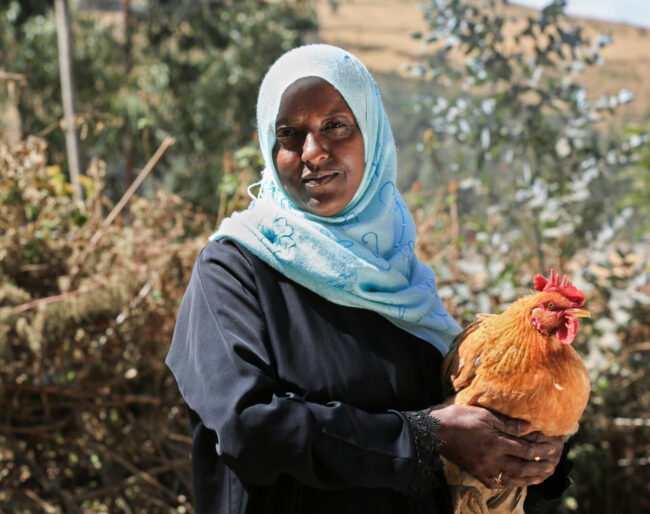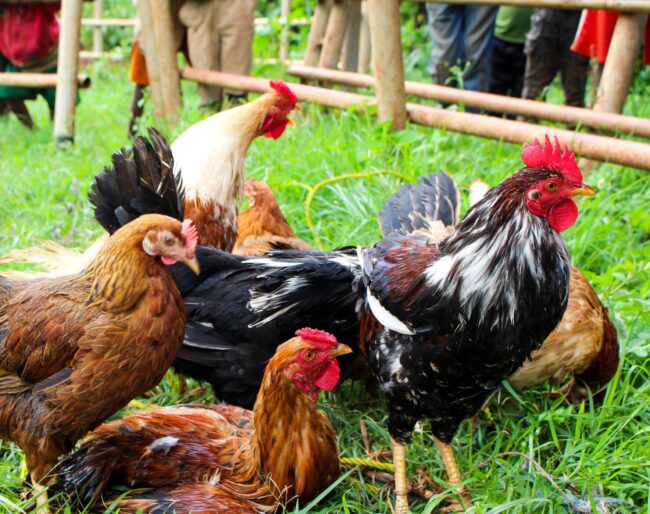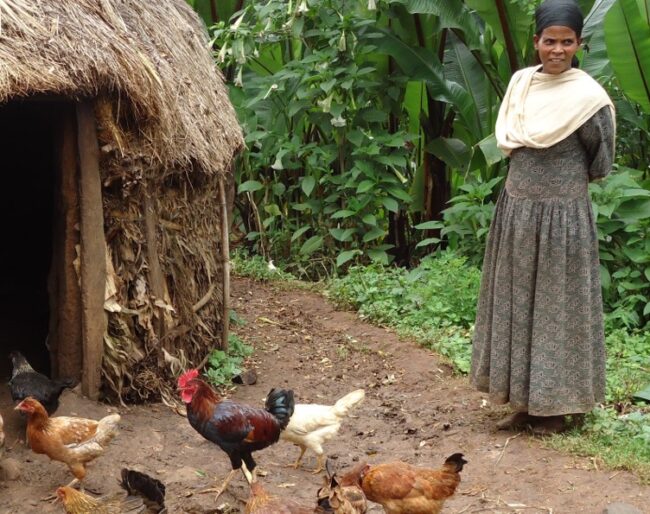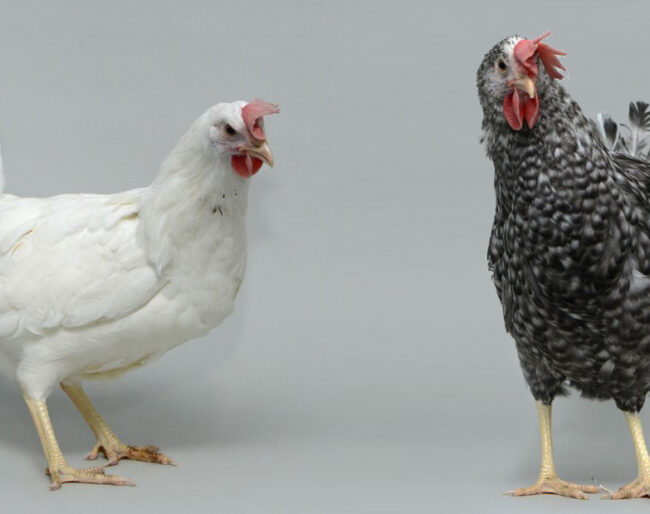Poultry Genomics
Poultry Genomics provides a platform upon which stakeholders will develop complementary projects to address the challenges of increasing the productivity of village poultry; improving both financial and nutritional security for the poorest poultry keepers, particularly women.
African Poultry Genomics: Unlocking the Potential for Improved Production
It has been consistently observed that indigenous poultry breeds in Africa tend to be more resilient to disease and environmental stresses such as high temperatures, compared to Western commercial breeds. However these tropically adapted poultry breeds show lower production traits, for example growth and egg laying.
CTLGH researchers and collaborators have established the largest tropical poultry genomic resource in the world, through the generation of over 580 full genomes representing 60 different indigenous African poultry populations. Robust data analysis strategies have now begun to help identify key regions, genes and variants within the genomes to underpin tropical adaptation, resilience and productivity.
Research at the interphase of poultry genetics, nutrition and health are being conducted at facilities in the UK and Ethiopia in order to identify the main constraints to poultry productivity

Tropical Poultry Production: research towards sustainable solutions
Online seminar highlighting the latest research from CTLGH and its partners to help improve the productivity and sustainability of small-holder poultry systems in sun-Saharan Africa
Featured projects

Important productivity and disease resistance traits found
CTLGH researchers and partners have identified several key health and productivity traits in indigenous Ethiopian chickens raised under scavenging conditions. The findings of this work suggest that genetic selection to improve these traits is feasible and could have huge implications for improving the health, productivity and resilience of indigenous poultry in Ethiopia in the future.

Novel Approach to Study Tropical Adaptation in African Poultry
Research funded by the Centre has advanced understanding about how indigenous African poultry populations have adapted to their environment in order to survive harsh tropical climate and scavenging conditions. Using a novel approach of integrating ecological niche modelling with genomics, key environmental drivers of adaptation have been identified. This will help improve the tropical adaptability of dual purpose breeds for smallholder poultry farmers in the future.

Gene-editing approach transfers beneficial genes between breeds
Researchers from CTLGH have developed a technology that enables beneficial genes to be transferred from one breed of chicken into another using sire dam surrogate mating. This technology can also play a vital part in the ex-situ conservation of DNA from African chicken breeds and help safeguard genetic diversity of indigenous poultry in the future
Programme Leads

